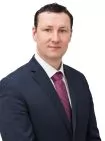Last week, the European fund structuring outlook breakfast took place in London, organised by Unquote covering topics such as whether the RAIF has met investor expectations and fund domiciling in an uncertain environment. As co-sponsor of the event we had members of our funds team from Luxembourg, UK, Jersey and Ireland in attendance and Anja Grenner, Director Fund Services in Luxembourg, was a panel speaker. Here are our five key takeaways:
1. There continue to be benefits and advantages of using the RAIF
The Reserved Alternative Investment Fund (RAIF) was introduced by Luxembourg law in July 2016 and it combines the characteristics of Luxembourg regulated Specialised Investment Funds (SIFs) and investment companies in risk capital (SICARs) with non-regulated structures. The RAIF is not subject to Commission de Surveillance du Secteur Financier (CSSF) approval before it's launched, nor is it subject to CSSF supervision once launched. This feature allows for a significantly reduced time-to-market for new fund launches. In addition, from a tax view point, the RAIF is very simple. Taxation happens at fund level rather than at investor level which makes it easier for managers who have investors in multiple jurisdictions.
2. The RAIF has exceeded investor expectations
The arrival of this innovative investment structure has indeed proved a welcome addition to the Luxembourg "toolbox" for asset managers looking to set-up investment vehicles in Luxembourg. It has not replaced the use of the pre-existing structures, but rather complemented the Luxembourg offering, enabling managers to choose a fund vehicle tailored to their specific needs. As such, the RAIF contributes to make Luxembourg a dynamic and competitive marketplace.
3. Luxembourg has a vast variety of options
Luxembourg is as popular as ever for being a jurisdiction of choice for fund structuring due to its stability and resilience in what's otherwise an uncertain political and regulatory landscape. More and more large funds from experienced and established fund managers are going to Luxembourg and they have to decide whether they go for a regulated or an unregulated fund structure. It's also becoming evident that as fund distribution and regulation is becoming more complex, more are moving to an onshore structure. Luxembourg is well positioned as a jurisdiction to accommodate for a variety of different fund structures.
Whilst there was a lot of talk around the benefits of Luxembourg, panellists also discussed the benefits of other jurisdictions, like Ireland for example. It was highlighted that Ireland remains an established centre for asset management and is a popular option for fund structuring for many firms.
4. Jersey is 'future proof'
When the topic of the 3rd country passport was discussed, Jersey as a jurisdiction was deemed 'future proof' as it provides optionality whereby alternative managers can opt for a regime that offers them market access certainty and flexibility as well as future stability. Many have been concerned the private placement regime will no longer exist, however it has been confirmed that the regime will remain in place until at least three years after the AIFMD passport is granted to third countries. With Jersey being approved as one of the first jurisdictions to be issued the AIFMD passport, private placement will still be a viable option in the meantime for managers as it's credible, fast and cost-effective.
5. By 'uncertain environment', we of course mean Brexit
One of the panel titles was tactfully called 'Fund Domiciling in an Uncertain Environment' and it was highlighted in the opening introduction that they were of course referring to Brexit. Panellists all agreed that the UK is not by any means ready to exit the EU however, on a more optimistic note, it was emphasised that while long-term outcomes are still not clear, managers have begun thinking about and considering short-term plans, ahead of the 15 April. It was inferred that whilst the path to a long-term solution will be long, it's likely that mutually beneficial agreement will be the end result.
The content of this article is intended to provide a general guide to the subject matter. Specialist advice should be sought about your specific circumstances.





